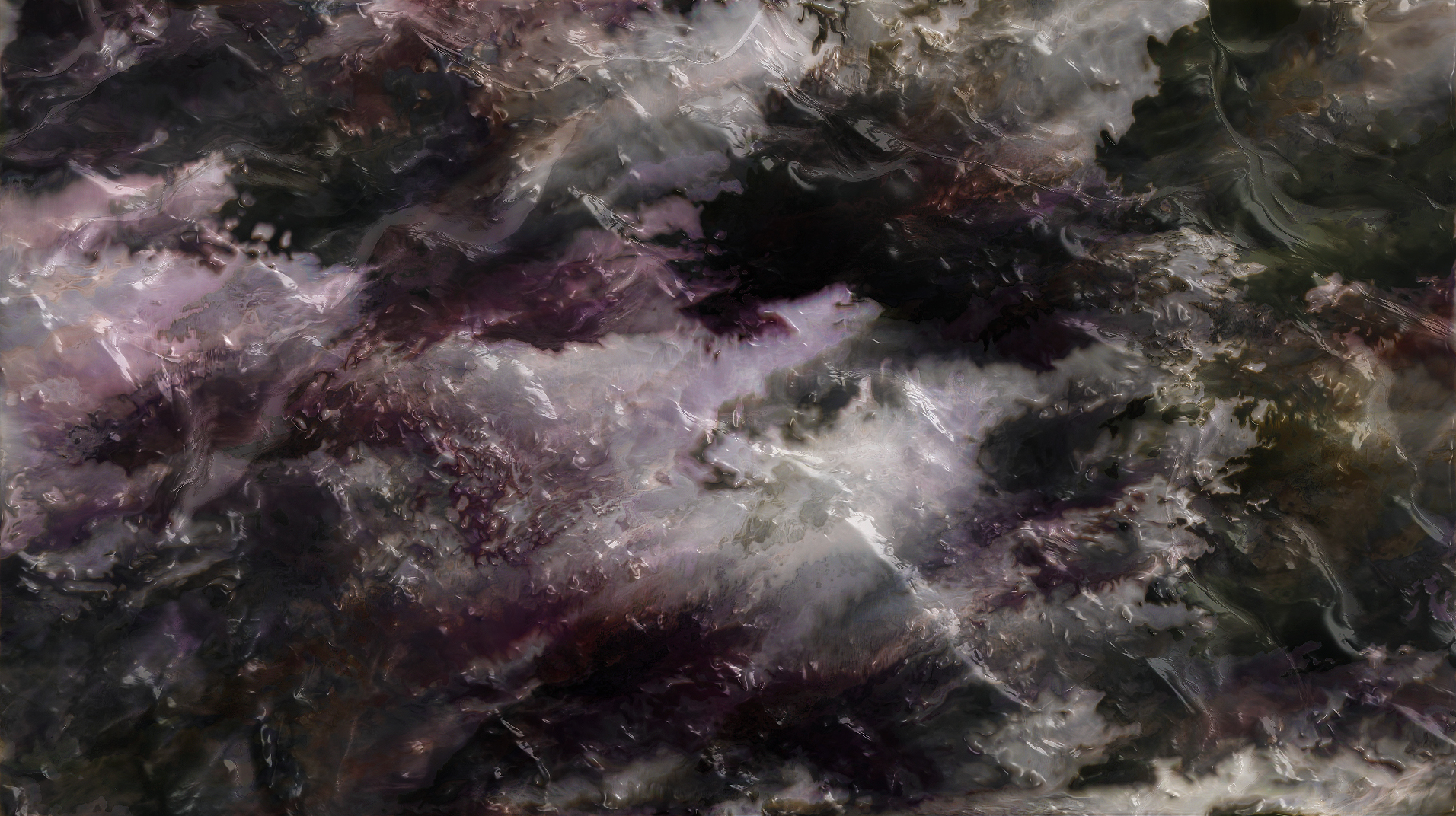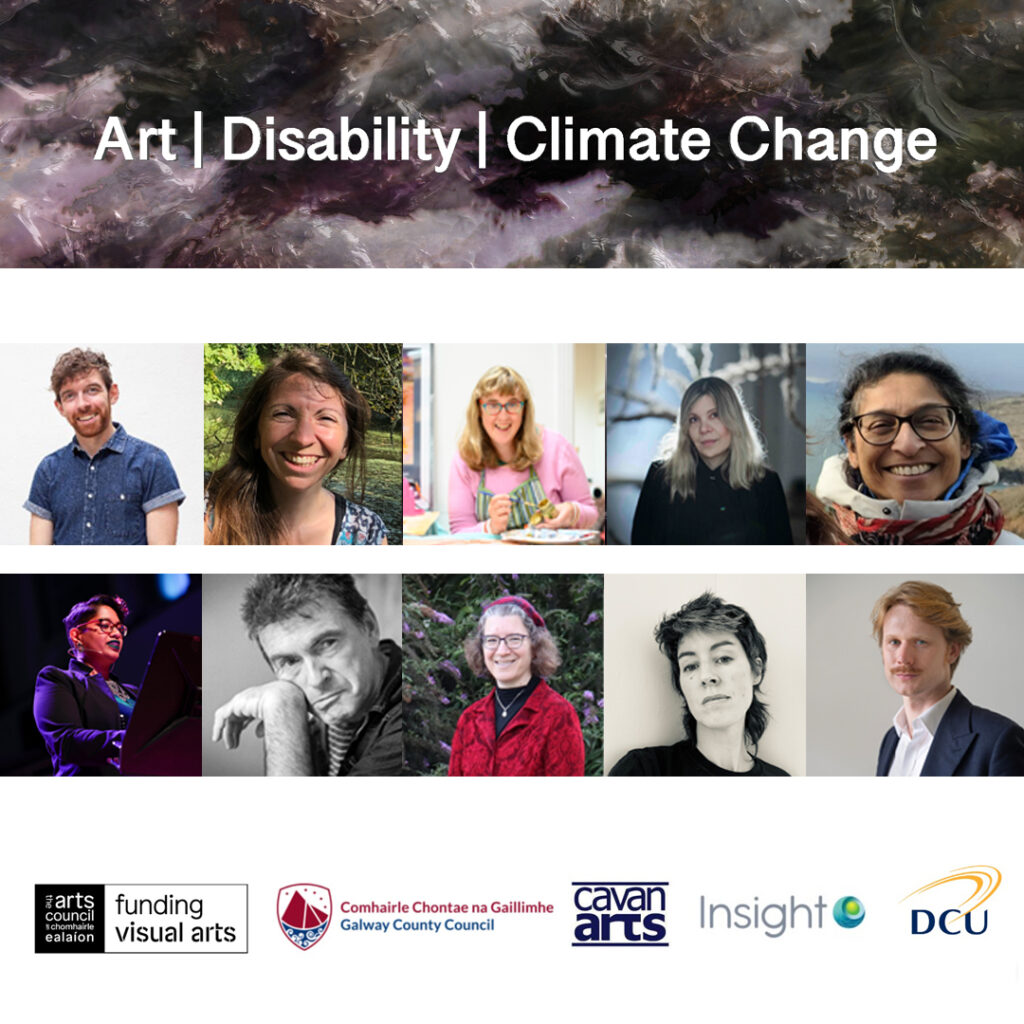

Webinar took place on Thursday 20 July 2023
Art, lived experience of disability, Climate Change and their intersections is explored by leading Irish and international arts professionals in an afternoon of online panel discussions.
Climate change disproportionately affects disabled people through ways such as eco-ableism, lack of accessible information, physical vulnerabilities in extreme weather events, inaccessible climate policies, to name a few.
However, people with lived experience of disability have expert skill sets which are needed to address the climate emergency, such as resilience, resourcefulness, understanding the value of community care, and specialist knowledge of navigating a world of barriers and obstacles. Yet disabled people are routinely and systematically not considered in climate action projects, policies, and discussions.
This panel discusses the national tour and artwork of Augmented Body Altered Mind. An interactive exhibition weaving a brain-computer interface with an audiovisual environment inviting audiences to visualise the way they think and how their brains work. The artwork celebrates neurodiversity, and how human brains have evolved to process information in ways that are specialised and divergent from each other that encourages collective and creative problem-solving. Nowhere is creative thinking more needed than the environmental crisis.
Marek Wolynski is a London-based curator and producer who specialises in large-scale projects and cross-sector partnerships at the intersection of art, nature, science, and technology.
AlanJames Burns is a neurodivergent, environmental artist and curator producing interactive, socially engaged and site-specific exhibitions. The focal points of their artistic practice are disability, climate change and the human mind.
Chandrika Narayana-Mohan is a writer and performer whose work has been published by Dedalus Press, Lifeboat Press, Poetry Ireland, Banshee, and Stinging Fly amongst others. Chandrika has collaborated with AlanJames Burns and Dylan Coburn Gray on Augmented Body, Altered Mind and is currently collaborating with Burns on The Waking Walls | Caoineadh Dúlra an upcoming project exploring climate grief.
The second session discusses art as a catalyst for inclusive climate action and a just transition by looking at the environmental advocacy work of artists and organisations who are addressing the disproportionate impact and accessibility challenges faced by disabled individuals during the climate emergency.
Peter Kearns is an Irish theatre artist and lecturer working with the Independent Living Movement. In March Kearns delivered an address to the Oireachtas Joint Committee on Disability Matters on the climate crisis and disability.
Jennifer Cunningham is a visual artist who has won many awards and her work is in collections all over the world. She frequently works with schools and colleges and has delivered many Creative Engagement and Artist in the Schools schemes at both primary and secondary level.
Panel 3:
Explores how disabled Irish artists raise awareness, challenge societal perceptions, and provoke meaningful discussions about the experiences of disabled individuals in the context of climate change and environmental degradation.
Prof Julia Watts Belser, a rabbi, scholar, and spiritual teacher who works at the intersections of disability studies, queer feminist Jewish ethics, and environmental justice. She directs Disability and Climate Change: A Public Archive Project.
Suzanne Walsh, artist and writer with an interest in non-human worlds, from animals to the esoteric, and in creating rifts through which new meanings and realities can emerge
Dr Tia Vellani, is an artist, musician, and scientist who produces multidisciplinary collaborations that explore connection and communication through art and music. She recently started working with live fungus as a metaphor for connection, communication, co-operation, and diversity.
Cecilia Bullo, visual artist whose practice is research-based and informed by historical, mythological, psychoanalytic and feminist theories, which create a vital conceptual framework for her physical work. Bullo’s recent series of works explores the artist’s concerns around gender violence and ecofeminism.
If you have any questions please email: info@alanjamesburns.com
Art | Disability | Climate Change | webinar is funded by
Arts Council of Ireland Touring Award, Galway County Arts Office, Cavan Arts Office, and SFI Insight Research Centre at DCU.